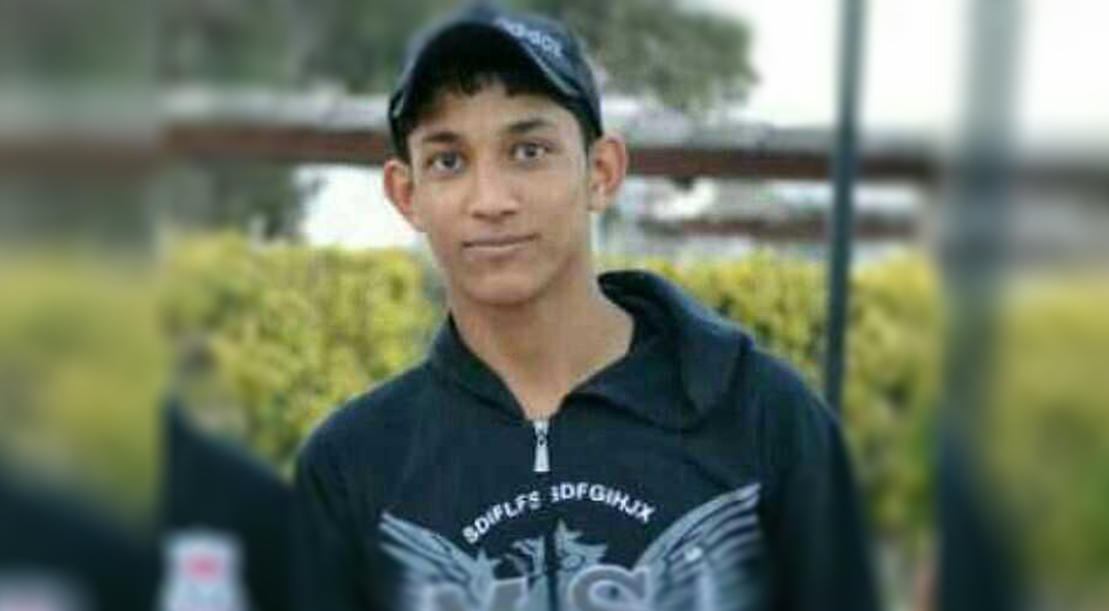Sayed Hashem Mohsen Fadhul was an 18-year-old Bahraini national who was arbitrarily arrested in 2015. He has been subjected to torture and ill-treatment on multiple occasions and is currently held in Jau prison where he is serving his sentences.
Sayed Hashem was arrested on 30 May 2015 in Bani Jamra as he was going to buy food from Al-Sater market. He was monitored by spies, and the car that he was in with his friend was followed and surrounded by riot forces, officers in civilian clothing, an arrest bus, and a helicopter. He tried to escape by foot and entered Bani Jamra where he was chased by all these forces, surrounded behind Al-Sater market, and severely beaten in front of passing eye witnesses. He was beaten so severely that he was carried out while bleeding and unconscious. When he was placed in the car, he was beaten for a second time. Authorities then took Sayed Hashem to Al-Budaiya police station, Al-Khayyala branch, where he was severely beaten again. They carried him around the village searching in many locations for any weapons he possessed, and whenever he said he did not own any weapons, he would be kicked and beaten on the head and body. He was also brought to his house by bus, where he remained, while masked civil forces searched his house and disheveled his possessions without any court order or warrant. Authorities had previously raided the house several times before his arrest, as Sayed Hashem had been wanted for a year and a half.
Investigative officers disappeared Sayed Hashem for a week with his family receiving no information about him. During interrogations in the Criminal Investigations Directorate in Adliya, he was subjected to torture and ill-treatment. He was left alone and undressed in an air conditioned room for 3 days without any food or water to get him to confess to acts he did not commit. Officers also beat him on the eyes and ears, which caused loss of hearing and poor eyesight, and threatened to have his family arrested in order to force him to confess on other individuals and false incidents. Officers would re-investigate and question him again every time to get him to confess and sign false statements. They would also insult and slander him with obscene words. A week later, arresting officers called his mother and said that they had brought Sayed Hashem to Dry Dock Detention Center. A week after that, Sayed Hashem, a minor, was finally able to contact his family.
Sayed Hashem was convicted in several cases, on charges including illegal assembly, terrorism, vandalism of public property, manufacturing of weapons, burning an armored vehicle, assaulting security forces, burning tires, and murdering members of the security forces. The total of his sentences amount to 70 years. After the appeals, some of the sentences were slightly reduced, but authorities would prevent Sayed Hashem from being present during trials under false pretenses, and if he was to be taken, he would stay in the car and would not be presented before the judge. Sayed Hashem was transferred to New Dry Dock Prison for convicts under 21 years of age after the issuance of the judgments.
Sayed Hashem also faced ill-treatment in prison. He has a chronic allergic skin condition which requires continuous medication, special clothes and shoes, and food containing vitamins. He did not receive treatment in Jau prison even after repeatedly requesting it, and when he was finally taken to the prison clinic, he was prescribed medicines which were only permitted to enter the prison after his family insisted and visited the prison multiple times.
In addition, Sayed Hashem contracted the Coronavirus on 31 May 2021. His family was not informed by prison officials and only knew about his infection through the Ministry of Health online system. Sayed Hashem was not allowed to contact them for the first five days of his infection. He was quarantined in a locked room and was not even allowed out of the cell for one hour. Healthcare professionals did not provide him with the proper medical attention such as taking his temperature and oxygen levels daily and monitoring his symptoms. Prior to the outbreak in prison, inmates were prevented from communicating with their families for more than a month and a half because of their demonstration against poor services and ill-treatment. They were punished, prohibited from purchasing personal items at the canteen, and communicating with their family.
Bahraini authorities’ actions against Sayed Hashem, from his arrest and interrogation to his treatment in prison, are in violation of international laws and standards, including the Convention Against Torture, the International Covenant on Civil and Political Rights, and the Mandela Rules. As such, ADHRB calls upon Bahrain to uphold its human rights obligations by annulling Sayed Hashem’s convictions in absence of incriminatory evidence against him and ensuring that any subsequent retrial is consistent with international standards of due process and fair trial rights. ADHRB additionally urges the authorities to investigate claims of torture and ill-treatment by prison officials, to hold those officials accountable, and to provide the victim and all prisoners with proper and timely medical treatment.





